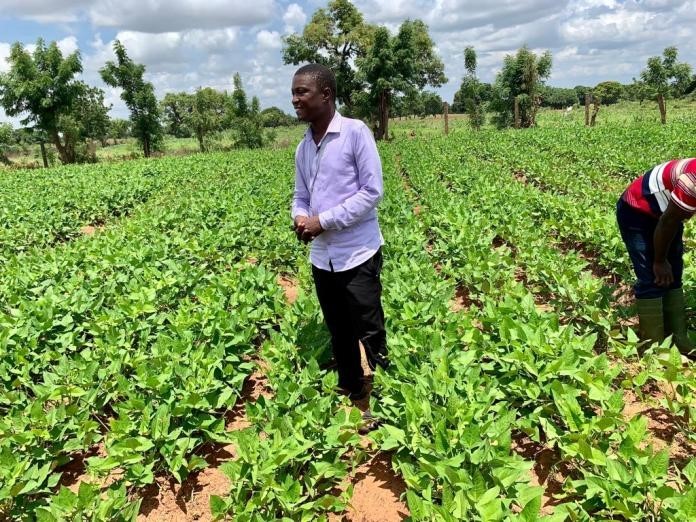- await approval from National Biosafety Authority
Scientists at the Savannah Agricultural Research Institute (SARI) of the Council for Scientific and Industrial Research (CSIR) have submitted an application to the National Biosafety Authority (NBA) for approval to release Ghana’s first genetically modified crop -Bt cowpea or beans – which has an in-built resistance to pest attacks.
A decision on acceptance or rejection from the authority is expected soon, the scientists told Business and Financial Times during a training and field visit to a Bt Cowpea field trial site and laboratories in Tamale – which was aimed at equipping journalists with broad knowledge of what genetically modified (GM) crops are and specifically offer them a firm understanding of GM cowpea.
Dr. Jerry Nboyine, an Entomologist and Principal Investigator-Bt Cowpea project at CSIR-SARI, said his outfit received about 100 seeds of homozygous PBR cowpea in 2017 which have since been multiplied several times – with the institute currently having about 15kg of seeds that were planted this season. “We expect to get, at least, 200kg of seeds by the end of this year for demonstrations toward its release,” he stated.
Ghana’s annual demand for cowpea is estimated at 169,000 tonnes. Meanwhile, the country produces only 57,000 tonnes annually. But with Bt Cowpea, farmers can attain the potential yields of most commercially released cowpea varieties, which is about two tonnes per hectare – a four-fold yield increment over existing yields.
“If you look at the normal varieties that we usually release to them, we always say that for every hectare a farmer should be able to harvest not less than 20 bags. But on the farmers’ field, they are hardly able to get up to 5 bags per hectare. That means they are losing about 15 bags just because of this destructive insect called Maruca. So, once we have this material out there it means farmers are going to get to a point where they can increase their yields by at least four-fold,” Dr. Nboyine stated.
The most damaging insect pests are those that attack from the flowering stage onwards, but mostly a pest known as Maruca vitrata. The Maruca-resistant cowpea project therefore overcomes these hurdles by using biotechnology tools to develop Maruca-resistant varieties of cowpea, which began in 2011.
Complementing PFJ and making farmers rich
According to him, release of the Bt Cowpea will complement government’s Planting for Food and Jobs programme and lead to attainment of food sufficiency in the area of cowpea production – warning that failure to adopt the innovation will render Ghanaian farmers non-competitive in the cowpea industry if other nations adopt Bt Cowpea and produce the legumes cheaply.
“They will eventually become poorer because the price of their commodity will be higher than the cheaper ones imported from neighbouring countries. And when farmers begin to produce this here and they are increasing their yields, what it means is that the amount of foreign exchange we spend to bring beans into the country will be stopped; and this will save our currency and the depreciation we experience. But once we can produce enough domestically, then we will not spend so much looking for foreign exchange to import beans into the country,” he added.
Farmers call for speedy release
Some of the farmers who spoke to B&FT called on government and other regulatory agencies to speed-up the approval process for the genetically modified (GM) pest-resistant cowpea for immediate commercialisation.
“The insects disturb us a lot. So, if government allows the CSIR-SARI to release the seeds for farmers it will help us a lot. For the GM cowpea, we are told that we can spray just twice; but what we have been cultivating over the years, we spray more than 6 times,” said Mohammed Sibdow Wuniboyeli, a cowpea farmer.
Another cowpea farmer, Adam Fuseini from Nyankpala added: “Because of the Maruca you can’t get good yields. It affects the crop and destroys the flowers when it is about to develop. Through that, we don’t get good yields. But researchers have come out with a technology that can withstand the pest. So, we are appealing for government to approve that GM cowpea for us. If it is approved, we can be assured of more yields which could improve food security in the country”.










